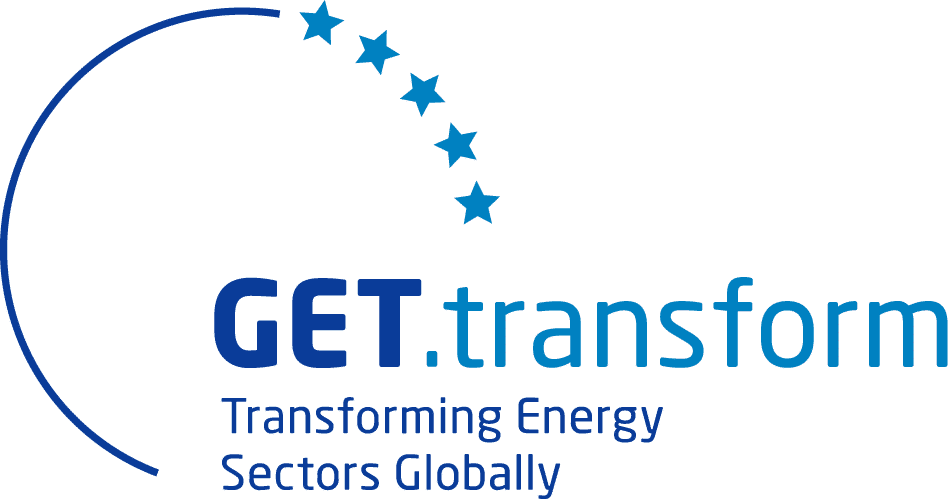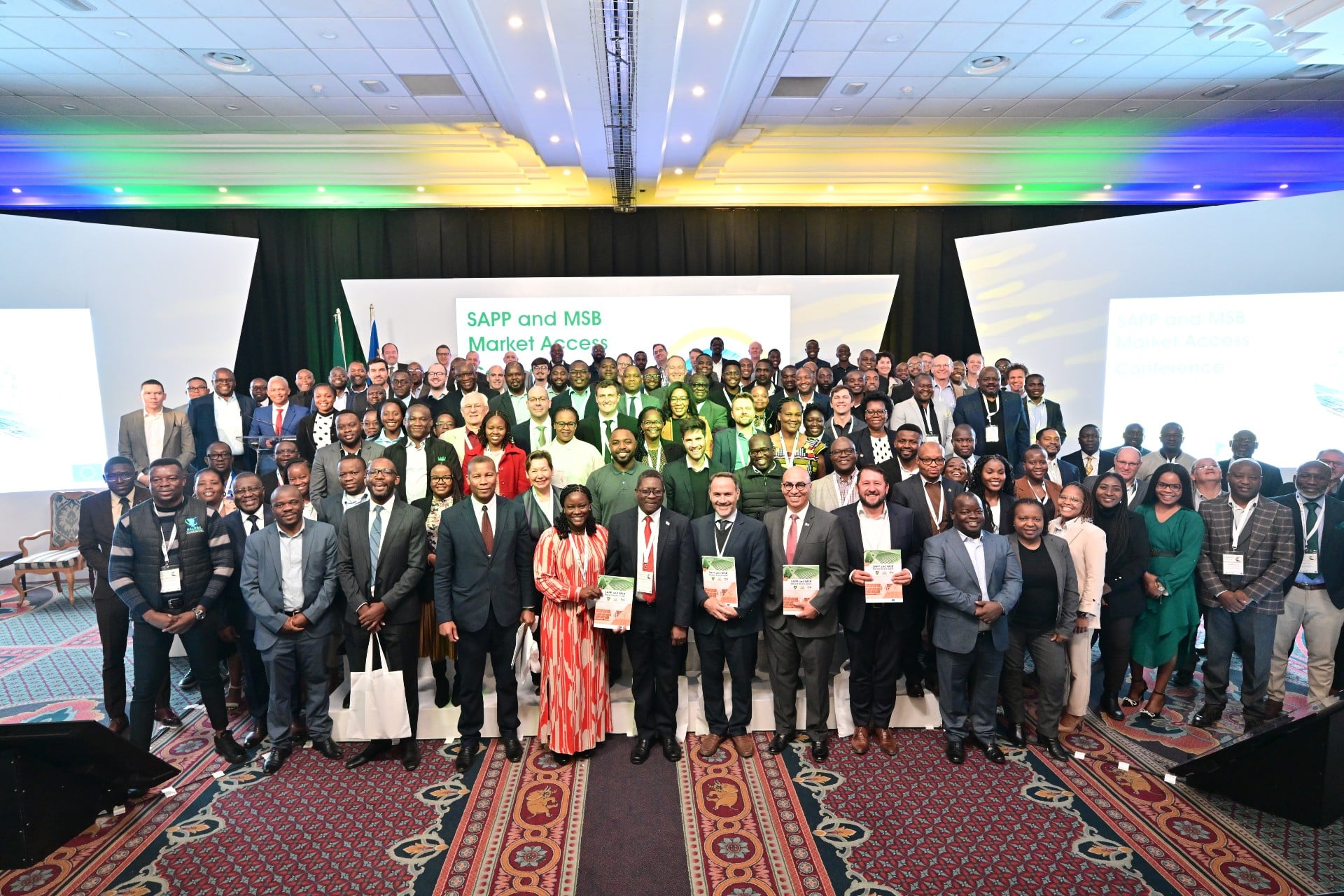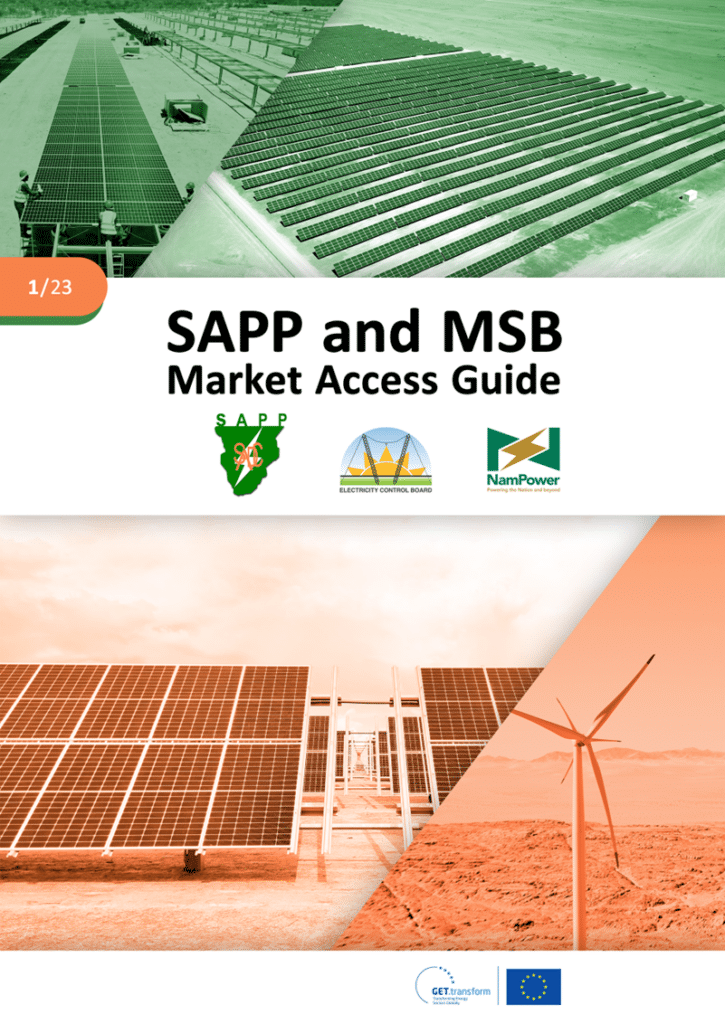Namibia’s Electricity Control Board (ECB), NamPower and the Southern African Power Pool (SAPP) have issued a joint guide to support Independent Power Producers (IPPs) in accessing the national and regional energy trading market. The “SAPP and MSB Market Access Guide” was launched today with support from the European programme GET.transform at the SAPP and MSB Market Access Conference in Windhoek.
By providing an overview of the market rules and roles in Namibia’s Modified Single Buyer (MSB) and the SAPP regional market, this guide addresses the urgent need for consolidated information. It assists IPPs in understanding and navigating the necessary processes and outlines the requirements for active participation in both markets.
SAPP has been successful in promoting the cooperation and coordination of the power sectors of its member states, including planning and operations activities of the SAPP interconnected grid, and the establishment of competitive electricity markets. While almost all electricity trading is still done by national utilities, SAPP member states are increasingly looking at deregulating their national markets and are also opening for regional market participation.
Through introduction of the MSB market rules, Namibia has partially opened its electricity market. This pioneering position makes the country a perfect model for lessons and replication in other SAPP members countries. The first edition of the SAPP and MSB Market Access Guide has been developed as a reference guide for future editions.
“Firmly acknowledging the local MSB market in Namibia, with this guide, we provide structured information on how to become an active SAPP member. We are starting from the advanced Namibian perspective but ultimately aim to boost electricity trading in the entire region through increased participation of independent players”, says Eng. Stephen Dihwa, the Southern African Power Pool, Coordination Centre Executive Director.
Namibia’s decision to deregulate its electricity market is driven by the country’s objective to enhance security of supply and its ambition to become Africa’s renewable energy hub. A greater share of renewables in the power mix requires increased distributed generation and must provide clear technical and commercial rules for grid access and trading to both the hosting national utilities and the various market participants.
“From a policy perspective, our MSB market model has opened the door to a whole range of new investors and enables exports into the SAPP markets. The guidelines offer vital information to anyone interested in tapping into this potential”, explains Robert Kahimise, Chief Executive Officer of ECB.
With a view to the evolving market in Namibia, Simson Haulofu, Managing Director of the country’s power utility NamPower, points out that, “pioneering any market reform does not come without its challenges, and implementing the MSB market is no exception. While this guide may not resolve and answer all the technical and commercial questions, it provides a solid foundation to enable a common understanding for all potential and existing participants in the MSB and SAPP markets.”
Linking up national and regional markets also helps to break further ground on the continental level. “We are excited to see the opportunities that open up for the sector through cross-border trading. Advancing these markets will provide valuable insights and offer economic prospects for Africa’s Single Electricity Market”, adds Ene Macharm, Africa Partnerships Coordinator at GET.transform who supported ECB’s, NamPower’s and SAPP’s collaboration on the guide.
Download the guide from ecb.org.na.



